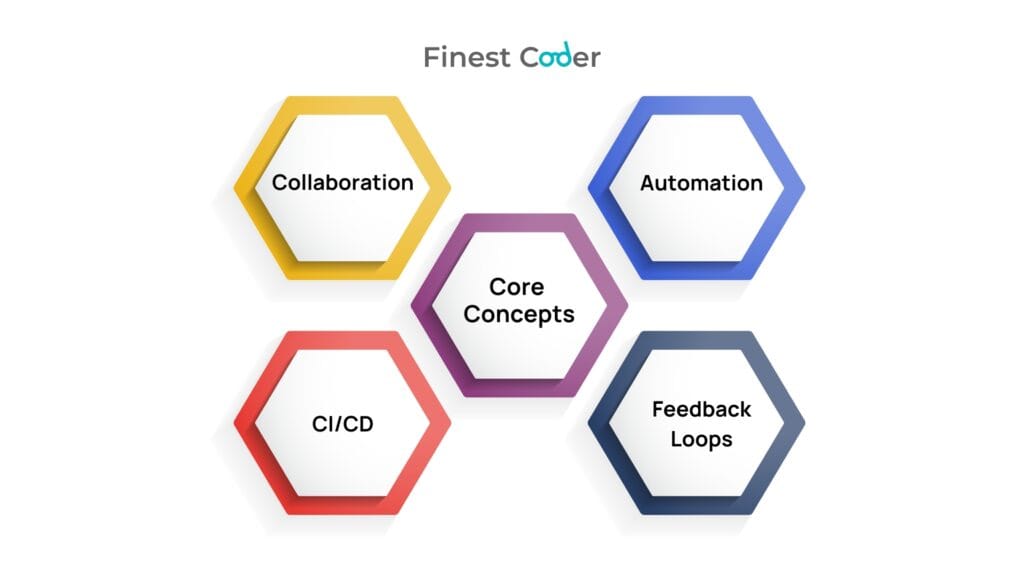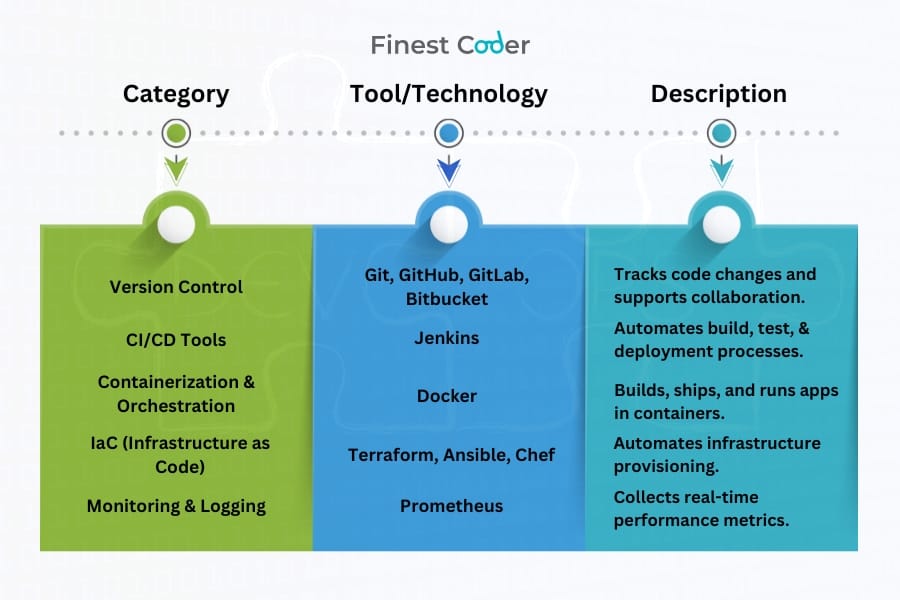In the rapidly evolving world of software development, staying competitive requires more than just knowledge of coding or system administration. Enter DevOps a philosophy and set of practices that break down traditional silos between development and operations teams. DevOps accelerates the delivery of software, improves collaboration, and enhances the quality of your product.
But how do you master this powerful methodology? This blog will explore essential tips, tools, and best practices to help you achieve DevOps mastery and become a proficient DevOps professional. Whether you’re a beginner or looking to refine your skills, this guide will provide the roadmap to success.
Understanding DevOps: The Foundation of Success
Before you dive into DevOps tools and practices, it’s essential to understand the core principles behind the methodology. DevOps isn’t just a set of practices or a collection of tools, it’s a cultural shift that unites development and operations teams under a common goal: delivering high-quality software at high speed.

Core Concepts in DevOps:
- Collaboration: The main idea behind DevOps is breaking down the silos between development, testing, and operations teams. This fosters better communication and teamwork throughout the entire software delivery lifecycle.
- Automation: DevOps encourages automating as many manual processes as possible, from coding and testing to deployment and infrastructure management.
- Continuous Integration & Continuous Delivery (CI/CD): The CI/CD pipeline allows teams to automatically build, test, and deploy code with every change made, ensuring faster releases and higher code quality.
- Feedback Loops: Continuous feedback from testing, monitoring, and operations allows teams to quickly identify and fix issues, improving the product over time.
Key Stat: Companies that implement DevOps see a 30% improvement in development speed and 50% faster recovery times from failures compared to those who don’t adopt the practice.
Essential Tips for DevOps Mastery

To master DevOps, you need a combination of technical skills, effective communication, and a commitment to continuous improvement. Here are some key tips to guide you:
Automate Everything
Automation is the backbone of DevOps. By automating repetitive tasks, such as code testing, deployments, and infrastructure provisioning, you reduce human error and free up time for developers to focus on innovation.
Automation Tools: Learn and implement tools like Jenkins for CI/CD, Docker for containerization, and Terraform for Infrastructure as Code (IaC).
Focus on Continuous Integration (CI) & Continuous Delivery (CD)
CI/CD is a DevOps best practice where code changes are automatically tested and deployed into production. This allows you to catch issues early and deploy faster with confidence.
CI Tools: Jenkins, CircleCI, GitLab CI.
CD Tools: Spinnaker, Argo CD.
Foster Cross-Functional Collaboration
DevOps promotes a culture where developers, testers, and operations teams work together from the beginning to the end of the development cycle. This minimizes miscommunication and leads to better product outcomes.
Invest in Monitoring and Feedback Mechanisms
Monitoring is a critical part of DevOps as it helps you track performance, spot issues, and get feedback on your application in real-time. Effective monitoring tools help you to identify problems before they impact your users.
Quick Tip: Adopt a “shift-left” approach to testing by integrating automated testing early in the development process. This helps catch defects at the beginning, reducing time spent on manual testing later.
Key Stat: Organizations using automated testing see 20-30% reduction in bugs and achieve 50% faster development cycles.
(Source: Accelerate: The Science of Lean Software and Devops)
Must-Have Tools for DevOps Success
To drive DevOps success, you need tools that enable automation, collaboration, and monitoring. Here are the essentials:

Best Practices for Implementing DevOps
Implementing DevOps effectively requires more than just mastering the tools. It involves adopting the right practices that enable collaboration, continuous improvement, and high-quality software delivery.
Start Small and Scale Gradually
Don’t try to implement every DevOps practice at once. Start with automating simple processes like build and deployment, and gradually move to more complex areas like infrastructure management and automated testing.
Prioritize Continuous Feedback
Integrate testing, monitoring, and code quality checks into your CI/CD pipeline to get real-time feedback. This allows you to identify issues earlier in the process and deploy high-quality code faster.
Automate Infrastructure and Configuration Management
By adopting Infrastructure as Code (IaC) practices, you can automate the creation and management of your infrastructure. Tools like Terraform and Ansible allow you to define your infrastructure in code, making it repeatable, scalable, and easier to maintain.
Secure Your DevOps Pipeline (DevSecOps)
Security is critical in DevOps. Incorporating security practices at every stage of the software development lifecycle ensures that vulnerabilities are detected early, reducing the chances of breaches in production.
Key Stat: Organizations implementing DevSecOps experience 50% fewer security breaches compared to those who don’t integrate security early in the development process.
DevOps Challenges and How to Overcome Them

While DevOps offers immense benefits, organizations face common challenges when adopting it. Here’s how to address some of these hurdles:
Resistance to Change
Adopting DevOps requires a cultural shift, and change can be met with resistance. This can be alleviated through proper training, clear communication, and small wins to demonstrate the value of DevOps practices.
Tool Overload
The sheer number of DevOps tools can be overwhelming. Focus on learning one or two tools well before expanding to others. Prioritize the tools that best address your team’s specific needs.
Maintaining Security
As DevOps emphasizes speed, it can sometimes lead to security risks. To mitigate this, adopt DevSecOps a practice of embedding security throughout the development and deployment process.
Your Path to DevOps Mastery with Finest Coder
Achieving DevOps mastery is a continuous learning process. It involves more than just tools it’s about adopting a collaborative mindset, focusing on automation, and consistently delivering high-quality software at a rapid pace. As the DevOps landscape evolves, staying up to date with the latest practices and tools will set you apart in your career.
To truly excel, you need a platform that supports your learning journey. Finest Coder provides aspiring DevOps professionals with hands-on experience, expert guidance, and real-world projects. With the right resources and community support, you can elevate your DevOps skills and become a master in the field.
Are you ready to level up? Join Finest Coder today and start your DevOps journey with us!







